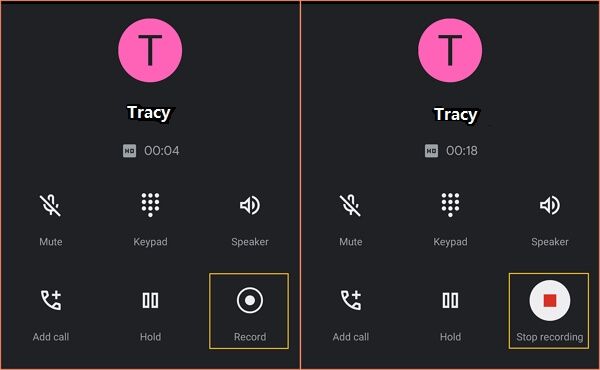If you accidentally deleted an important recording that you want to recover, don’t panic. There are a few different methods you can try to get that recording back.
Here are quick answers to some common questions about recovering deleted recordings:
Can I recover recordings after emptying the trash or recycle bin?
Yes, it is often possible to recover deleted recordings even after emptying the trash, as long as the space they occupied has not been overwritten with new data.
How long do I have to recover a deleted recording?
The sooner you act, the better your chances of recovery. As time passes, the deleted recording is more likely to get overwritten.
What are my options for recovering a deleted recording?
Try using recovery software, restore from a backup, or consult a data recovery service. The right option depends on your specific device and circumstances.
Attempt Recovery Using Software
One of the first things to try when looking to recover a deleted recording is to use recovery software. Here are some options to consider:
Recuva
Recuva is a free deleted file recovery program available for Windows. It can recover deleted files from hard drives, external drives, memory cards, and other storage media. Recuva has a simple interface and deep scan capabilities to find files marked for deletion.
TestDisk
TestDisk is an open source deleted file recovery application. It aims to recover lost partitions as well as undeteled files. TestDisk can be used on Windows, Mac OSX, and Linux. It’s not the most user-friendly app, but is free and effective.
Photorec
PhotoRec is a companion to TestDisk focused specifically on recovering lost media files such as photos, audio, and video. It supports many file systems and operating systems. PhotoRec reconstructs the data rather than rely on file system metadata, improving chances of recovery.
These are just a few examples – there are many data recovery apps to try if you’ve deleted a key recording. Always scan for virus/malware before installing any unknown software.
Attempt Recovery from a Backup
If you regularly back up your computer and storage devices, you may be able to restore your lost recording from a recent backup.
Restore from Local Backup
If you back up to an external drive, jump drive, or separate disk partition, reconnect it and try restoring the lost recording. This is the fastest way to retrieve deleted files if your backup is recent.
Use Cloud Backup
Services like iDrive, Acronis, and Crashplan create offsite backups. Connect to your account and browse for previous versions of the deleted recording. Make sure your cloud backup service was actively backing up the device where the recording was stored.
Sync Services
If you have the recording saved in a synced cloud account like Dropbox, OneDrive, or Google Drive, check whether the file still exists in the cloud. Log in to the service and try downloading the recording to your device.
Use a Data Recovery Service
For very important recordings that you’ve been unable to restore yourself, consider consulting a data recovery service. Experts have specialized tools and clean room facilities to open drives and reconstruct lost data at the lowest level.
Logical Recovery
Logical recovery relies on the file system metadata to reassemble files. It works when the file system is accessible and relatively intact, but severe corruption or overwriting will prevent it.
Physical Recovery
Physical recovery directly accesses the disk or drive sectors to extract data. It can recover data even with major logical damage, but is costly because it requires specialized tools and class 100 cleanroom environments.
Data recovery services charge several hundred dollars or more to attempt recovering lost recordings. The fee may be worthwhile for irreplaceable recordings, but consider it carefully.
Prevent Future Recording Deletions
To avoid needing to recover deleted recordings in the future, implement safeguards:
- Enable the “recycle bin” so you can retrieve accidentally deleted files
- Set recordings or your entire device to read-only when not actively editing to prevent deletions
- Use versioning in cloud storage to retain previous versions of changed files
- Back up regularly to both local and cloud destinations
Recover Deleted Recordings: Q&A
Here are answers to some frequently asked questions about recovering deleted audio, video, or other recordings:
What are my chances of recovering a deleted recording?
Your chances depend on how the space was reused after deletion. If overwritten, recovery is near impossible. But if left untouched, specialized recovery tools can retrieve data marked as deleted.
Can I recover recordings deleted months or years ago?
If the space has not been overwritten, even years-old deleted recordings can potentially be recovered. But the longer the time gap, the lower your chances of recovery.
Can professionals recover recordings after a factory reset?
It’s challenging but sometimes possible to recover recordings after a factory reset, as long as the physical storage has not been reused or overwritten. Expect to pay over $1000 and provide proof of ownership.
What’s the best free deleted recording recovery software?
Top free tools include Recuva for Windows, TestDisk/Photorec for multiple platforms, and Stellar for Mac. Each has strengths in different situations.
| Software | Platform | Key Features |
|---|---|---|
| Recuva | Windows | Simple interface, deep scan capabilities |
| TestDisk | Windows, Mac, Linux | Recovers lost partitions, works at disk level |
| Stellar | Mac | Recovers many file types, easy to use |
Can I recover recordings after a disk crash or drive failure?
Drive failures make recovery very difficult, but an expert may be able to extract recordings by repairing or imaging the drive in a cleanroom environment.
Conclusion
While recovering deleted recordings is not always possible, take heart. With the right tools and techniques, you stand a good chance of getting back media files you thought were gone forever. Move quickly, be persistent, and enlist professional assistance if needed. Follow best practices for backing up recordings to avoid needing to recover deletions.
